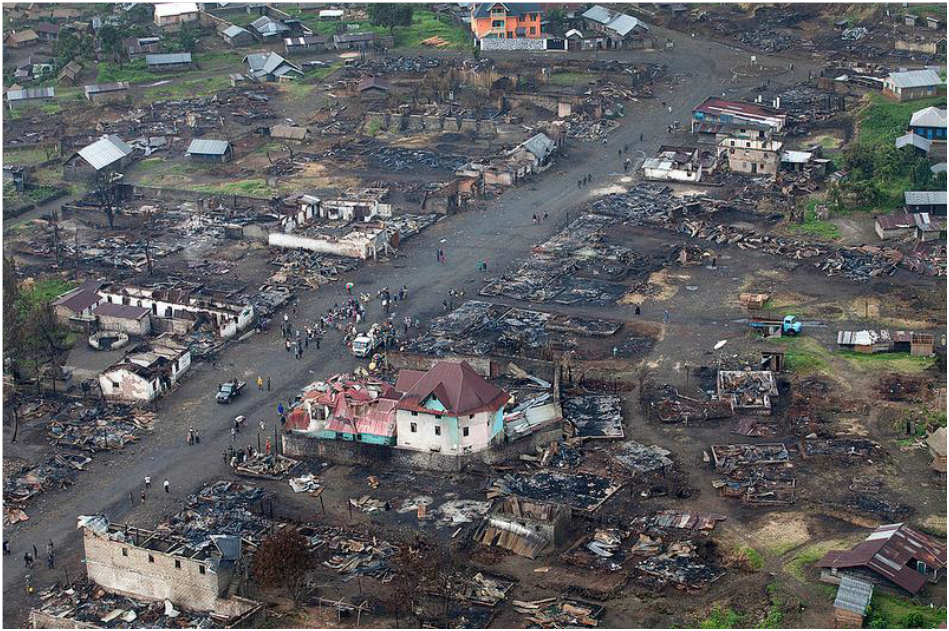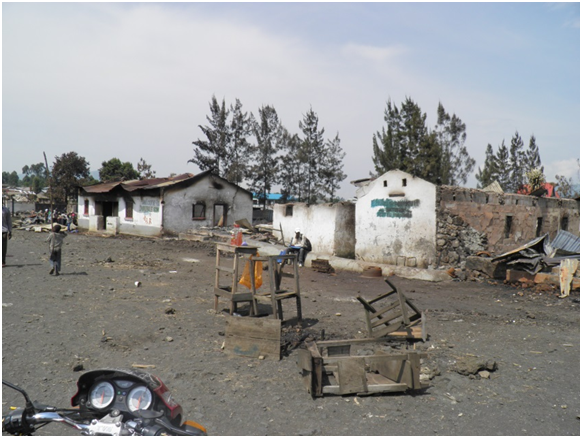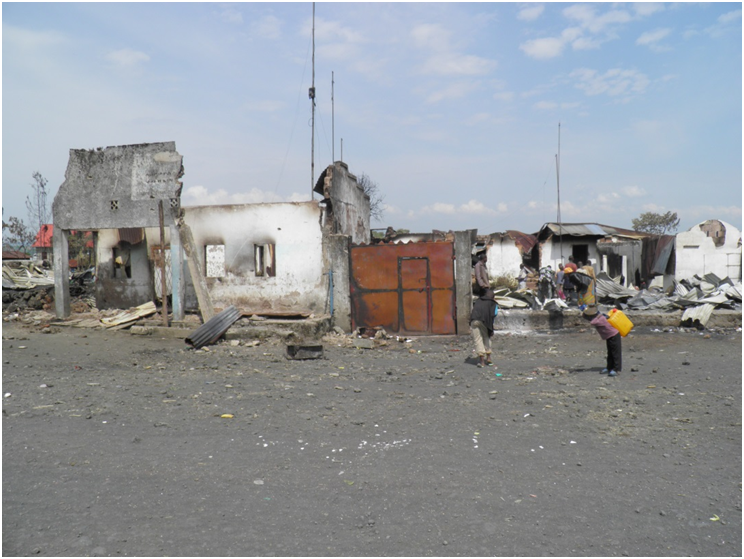
The silent killings
Freddy Batundi, MRG Africa’s Capacity Building Officer, raises the alarm about a dangerous pattern of discrimination towards the Hunde in his hometown of Kitshanga, in the beleaguered eastern Democratic Republic of Congo

The situation in Kitshanga today is “apparently calm”. However, the situation is far from being peaceful; people are struggling to live with the consequences of the killings that were perpetrated on them. More than 202 people were killed during March, more than 227 houses set on fire, and hundreds of families displaced.
The political wars in the DRC which started in 1996 have overshadowed the ethnic killings that are ongoing. I believe something worse is happening behind the scenes, silently. Widespread violence against the Hunde people is taking place, while the whole world is focussed on the recurrent “rebellions against the government” and “looting of minerals in the eastern DRC.”

Kitshanga is the main town in the Bashali Mokoto sector. It is located in the Masisi territory, North Kivu province, in the eastern part of the DRC. The city is built on the border of two territories (Masisi in the west and Rutshuru in the east) and is located 90 km north-east from the town of Goma, which is the capital of the province.
Kitshanga has an estimated population of about 200,000 households. Until recent events, the Hunde were cohabiting in full harmony with other ethnic groups including Hutu, Tutsi, Nyanga and Nande. The main activity of the town is small businesses, but inhabitants also practice agriculture and livestock keeping.
The incident that happened in Kitshanga at the beginning of March is similar to many others that happened between 1993 and 1998, targeting the Hunde tribe who are mainly located in the Masisi territory. Most Hunde live in Kitshanga because they have left their villages due to atrocities committed against them since the 1990s.

We need to remember that in my country, the rights and the identity of a people are defined in relation to their land, historical origins (native or non-natives), culture, language and membership of a traditional authority (kingdom); and, possibly, to their number (majority or minority).
It is becoming apparent that the recent incident in Kitshanga is not “isolated”, but is part of a larger plan which aims to exterminate the Hunde.

There have been migratory flows (of Tutsi and Hutu from Rwanda) into the Masisi territory, gradually transforming the Hunde people, once a majority, into a fragile minority (as their land it taken with no compensation). Refugees from Rwanda are never relocated elsewhere, in spite of the space available in other provinces or territories in DRC.
There have been a number of mass killing incidents and systematic threats in order to forcibly displace the Hunde from their lands.
There is a systematic pattern of discrimination against the Hunde:
- Identity alienation: e.g. names of villages changed into Rwandan names, prohibition of the Hunde language in public spheres such as schools while other languages are tolerated and cultural groups are banned.
- Political discrimination: the Masisi territory is represented by Hutu and Tutsi at the national assembly. During the elections of November 2011, elections in the Masisi were contentious. Under pressure from the M23/CNDP, the president ordered to co-opt some Hutu and Tutsis to cool down the pressure. No single Hunde was named in spite of the Hunde having the right to political representation.
- Forced internal displacement or exile: as I said earlier, Kitshanga is the only remaining Hunde agglomeration. Most people are forced (by threat, wars and atrocities) to live in Goma as IDPs where they do not have access to schools and other social services and live in severe poverty due to lost livelihoods. The most fortunate go into exile in other provinces or out of DRC.

I am convinced that the Hunde ethnic community is in peril if nothing is done. For the last 20 years, the Hunde have been struggling for their survival. But the battle seems to be more or less lost.
What can international organisations do?
- Lobby international institutions and the UN for protection for the Hunde community, for their increased participation in public life and viable socio-economic stability, and security on their own land.
- Conduct research to ascertain facts on the ongoing killings against the Hunde people in the eastern DRC.
- Advocate for an effective UN mission in DRC to protect lives. As it stands now, people are being killed while the UN troops are watching. It is painful to see how people are being snatched from the IDP camps and killed under the UN’s watch.
—
This article reflects the sole opinion of its author and does not engage MRG’s responsibility.